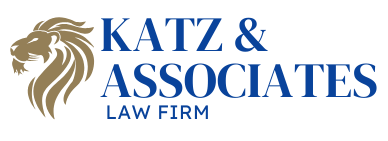Navigating Compliance in a Growing Business: Key Areas, Risks, and Solutions
Need A Florida Lawyer? Fill Out The Form Below
Guard Your Ideas: The Key to Maintaining Your Competitive Advantage

Navigating Compliance in a Growing Business: Key Areas, Risks, and Solutions
Compliance in business means adhering to relevant laws, regulations, standards, and ethical practices, which can vary by industry, jurisdiction, and company size. For growing businesses, compliance is critical in avoiding legal risks, maintaining public trust, and protecting business growth. However, as businesses expand, staying compliant becomes more challenging, with several areas requiring careful attention to mitigate potential risks.
Key Compliance Areas for Growing Businesses
1.Employment Law Compliance
- At-Risk Areas: Fair treatment, employee classification, workplace safety, and appropriate compensation.
- Strategies: Regularly update HR policies, provide employee handbooks, and conduct training to ensure everyone understands their rights and responsibilities. Keeping policies in sync with evolving labor laws is essential.
2. Financial Reporting
- At-Risk Areas: Accurate and transparent financial disclosures are vital to maintaining credibility.
- Strategies: Implement reliable accounting systems, conduct frequent audits, and ensure transparency in financial statements. These practices help prevent errors, ensuring compliance with financial regulations.
3. Data Privacy and Security
- At-Risk Areas: Protection of customer data under laws like GDPR and CCPA.
- Strategies: Utilize compliance management software to track regulatory changes and automate data security protocols. Regular security audits and training are also essential to prevent data breaches.
4. Environmental Regulations
- At-Risk Areas: Waste disposal, emissions, and sustainability practices.
- Strategies: Align business practices with local and federal environmental regulations by developing robust policies, performing impact assessments, and adjusting operations as necessary.
5. Licensing and Permits
- At-Risk Areas: Industry-specific certifications and operational permits.
- Strategies: Maintain a renewal schedule for licenses and permits, and consult legal experts to ensure all required documentation is current.
Industries Most Susceptible to Compliance Issues
Certain sectors face heightened regulatory scrutiny:
- Finance and Banking: Subject to stringent regulations like AML, KYC, GDPR, and SOX.
- Healthcare and Pharmaceuticals: Requires strict adherence to patient privacy (HIPAA) and drug safety standards.
- Energy and Utilities: Must comply with environmental, health, and safety regulations.
- Information Technology: Encounters data protection and cybersecurity challenges.
- Manufacturing: Faces safety, quality, and environmental standards.
Why Growing Businesses Are at Greater Risk
As businesses scale, they often operate in new markets, hire additional staff, and face complex regulatory landscapes. This growth can introduce unfamiliar compliance risks, with multiple regulations needing attention simultaneously. Without dedicated resources or experienced guidance, these businesses may inadvertently violate laws, risking fines, operational disruptions, and reputational damage.
Identifying and Managing Compliance Issues
- Automate Processes: Compliance technology like GRC (Governance, Risk, Compliance) tools can streamline processes, reducing the risk of manual errors.
- Outsource for Expertise: Compliance management service providers (MSPs) offer specialized knowledge, particularly valuable for businesses without in-house compliance teams.
- Develop a Comprehensive Compliance Program: Create clear policies, conduct regular audits, and set up a dedicated compliance team to ensure ongoing regulatory adherence.
Protecting Your Business
Building a proactive approach to compliance management is essential. Implement systems for ongoing regulatory monitoring, conduct regular employee training, and review internal policies frequently. By focusing on these critical areas, businesses can avoid penalties and maintain a trusted reputation with customers and regulators alike.
Where to Find Compliance Support: Compliance Companies vs. Law Firms
- Compliance Companies: These providers offer expertise, efficiency, and cost-effective solutions, often using technology to automate compliance processes. They are ideal for businesses that require ongoing support without extensive legal advice.
- Law Firms: Legal experts can offer tailored advice, risk management, and policy development, ensuring your business understands complex regulations. Law firms are essential when regulatory challenges require precise legal interpretation or involve high-stakes risks.
For growing businesses, navigating compliance can seem daunting, but with proactive planning and expert guidance, it’s manageable. Whether by using technology, engaging with compliance companies, or consulting a law firm, businesses can stay compliant while focusing on growth.
Why Choose Katz & Associates for Compliance Support?
At Katz & Associates, we provide expert guidance to help your business navigate the regulatory landscape with confidence. Our team specializes in breaking down complex legal texts into actionable steps, aligning compliance strategies with your industry standards, and offering proactive support to anticipate and adapt to regulatory changes. Partner with us to safeguard your business, mitigate risks, and focus on sustainable growth with trusted legal expertise by your side.
Powered and Designed by Boost (boostvse.com)













